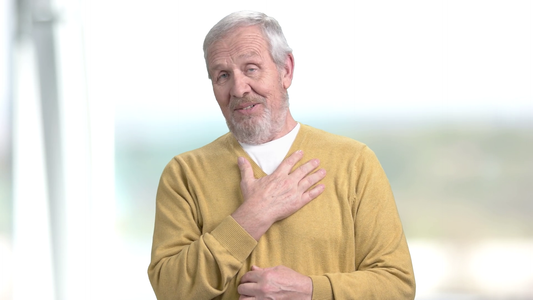Who Am I Now? The Emotional Toll of Cancer
Share
They don’t prepare you for the emotional part.
Doctors talk about tumors, treatment plans, side effects, and prognosis. But no one pulls you aside and says, “This might break your heart in ways you don’t expect.” I wish someone had.
Because cancer didn’t just affect my body it started to chip away at the picture I had of myself. And some days, that was harder to face than the physical pain.
When the Mirror Changes
I used to be strong — not in the gym-rat sense, but in the “I’ll take care of it” kind of way. I fixed things. I lifted heavy stuff. I was the guy people called when they needed help moving a couch or calming a storm.
But during treatment, I lost weight fast. My clothes hung on me. My face looked hollow. I had a feeding tube in my belly and a chemo port in my chest. Most days, I couldn’t stand for long. And for the first time in my life, I had to ask for help to do basic things like get out of bed or clean the tube site.
I didn’t recognize myself. And I didn’t know how to admit what that felt like without sounding dramatic.
The truth? It felt like grief. I was grieving a version of me that couldn’t exist anymore at least not for now.
The Anger No One Talks About
There was anger too. Not at the doctors, not at the treatment but at the loss of control. At my own body for betraying me. At the fact that I had already lost my first wife to cancer, and now I had to face this disease myself.
Some days, I was angry at the world for moving on while I was stuck in bed. Angry at well-meaning people who said things like “stay strong” when all I wanted was permission to fall apart.
I learned that anger in this process is not a character flaw, it's part of the terrain. You’re not failing if you feel it. You’re not broken if you scream into a pillow or cry in the shower or want to be left alone.
You’re just human.
The Quiet Shift
Eventually, something shifted. I stopped trying to “be strong” in the way I thought I had to be.
I started being honest with my wife, with my daughter, with myself. If I was scared, I said it. If I was tired, I didn’t apologize. If I needed space, I asked for it. That kind of honesty became its own kind of strength.
And in the stillness of the hours I spent lying in bed or staring out the window I found a strange sense of peace. Not because I was okay with what was happening, but because I stopped pretending that I wasn’t affected by it.
Cancer stripped everything down. It didn’t just test my limits, it redefined them.
I had to learn that identity isn’t just what you do. It’s also how you show up when everything else is stripped away.
And when I showed up with honesty and heart, even in the middle of the mess I found myself again.
If You're Feeling Lost
If you’re reading this in the thick of your treatment, and you’re wondering who you are now I get it.
If you look in the mirror and barely recognize the person staring back, I’ve been there.
But hear this: you are not lost. You’re becoming. It might not feel like it now, but the person you’re becoming, the one shaped by fire and grace is just as worthy, just as whole, just as strong.
Even if you’re angry. Even if you’re scared. Even if you’re not who you were before.
In the next post, I’ll share more about the tools that helped me rebuild: mindset, meditation, movement (when possible), and the power of choosing one small thing each day that kept me going.
But for now, just breathe.
You're still here. And that matters more than you know.
– Ken



